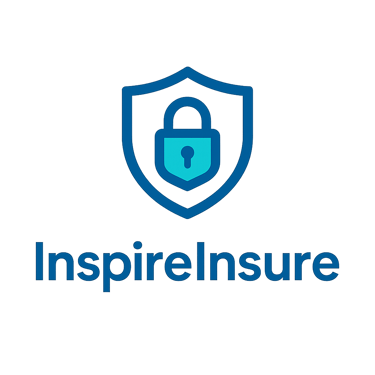HIPAA Compliance for Freelancers: What Designers, Developers & Virtual Assistants Need to Know (2025 Guide)
Are you a freelancer working with healthcare clients? Learn what HIPAA compliance means for solopreneurs, what risks you face, and how insurance protects you from violations.
COMPLIANCE & LEGAL
Written by InspireInsure | Compliance & Legal for Freelancers and Microbusinesses
8/12/20254 min read


Why HIPAA Matters to Freelancers in 2025?
HIPAA (Health Insurance Portability and Accountability Act) isn’t just for hospitals or doctors. It also affects freelancers and microbusinesses that handle or interact with healthcare data—even indirectly.
Whether you're a web designer building a clinic's site, a VA managing patient emails, or a developer integrating appointment software, you may be legally considered a Business Associate under HIPAA.
And yes, that means you're legally responsible for protecting Protected Health Information (PHI)—even if you only touch it briefly.
⚠️ HIPAA violations can lead to federal fines starting at $100 per violation, up to $1.5 million per year—even for solopreneurs.

Who Needs to Worry About HIPAA?
You must consider HIPAA if you freelance in roles like:
Web or app development for medical/dental practices
Graphic design or marketing for health professionals
Virtual assistance for clinics, therapists, or wellness coaches
Email automation involving patient reminders or scheduling
Hosting or storing health data (even temporarily)
Providing IT services to covered entities
If your client is in the healthcare space, assume HIPAA applies until proven otherwise.


What Is Considered Protected Health Information (PHI)?
PHI includes any data that can be used to identify a patient and relates to their:
Health condition
Healthcare service
Payment for healthcare
Common examples you might encounter:
Names, addresses, or emails tied to patient records
Medical appointment details
Insurance numbers
Health assessments or intake forms
Even storing these on your laptop—or accessing them via Google Drive—could put you in violation if not secured properly.
Freelancer HIPAA Responsibilities (Yes, You Have Them)
Under HIPAA, you may be legally defined as a Business Associate if you work on behalf of a "covered entity" (your healthcare client). This means:
✅ You’re responsible for safeguarding PHI
✅ You must sign a Business Associate Agreement (BAA)
✅ You’re liable for breaches, leaks, or access issues
✅ You may be audited or investigated by the U.S. Department of Health & Human Services (HHS)
Many freelancers don’t even realize they’ve signed a BAA until a problem arises.
3 Common HIPAA Mistakes Freelancers Make


1. Using unsecured platforms (Gmail, Dropbox, Trello, etc.)
Not all tools are HIPAA-compliant. Google Workspace can be, but only if set up correctly and under a BAA. Using personal accounts or open tools can expose PHI.
2. No data access policies or encryption
If you don’t have basic safeguards like 2FA, encrypted storage, or password managers, you could face penalties—even if no breach occurs.
3. Assuming “I’m too small to be a target”
HHS has fined solo contractors and small agencies. HIPAA doesn’t care about your size—it cares about how PHI is handled.
How Insurance Helps Freelancers Stay HIPAA-Compliant
Insurance doesn’t make you HIPAA-compliant—but it protects your business if something goes wrong. Two key policies are especially helpful:
2. Cyber Liability Insurance
Covers data breach response (forensic IT, notifications, PR)
Helps pay HIPAA-related fines or investigation costs
May cover credit monitoring for affected patients
Some policies include HIPAA-specific legal support
1. Technology Errors & Omissions (Tech E&O)
Covers lawsuits from clients due to compliance failures
Helps with legal defense if you’re blamed for a breach
May include contract dispute support
Example: A freelance IT specialist forgets to secure a database that stores patient intake forms. The clinic sues for breach of contract. Tech E&O pays for defense and settlement.
Real-World Example: How One VA Got Caught Off Guard
Emily, a virtual assistant, worked for a chiropractor, managing appointment reminders and intake form submissions through Google Forms. One day, her Gmail was compromised. Even though she wasn’t the clinic owner, the breach involved PHI—and she was named in the HIPAA investigation. She had no BAA, no breach policy, and no insurance. The result? A lost client, legal stress, and thousands in cleanup costs she had to pay out of pocket.
Tools to Help Freelancers With HIPAA
HIPAA doesn't require perfection—it requires reasonable effort to safeguard data. These tools help:
Notes
Google Workspace (w/ BAA)
Tool
HIPAA Role
Forms & submissions
Must activate BAA with business account
Jotform HIPAA Plan
Email, docs, storage
Encrypted form handling for PHI
LastPass
Password storage
Keep client logins secure
Two-Factor Auth (2FA)
Enabled on all work devices
BAA Templates
Legal contracts
Use vetted templates or ask client for one
Device Protection
Final Thoughts: Stay Smart, Stay Covered
HIPAA isn’t optional—even for tiny teams. But it doesn’t have to be overwhelming. With the right tools, contracts, and insurance coverage, you can safely work with healthcare clients and grow your business confidently.
Remember: Compliance protects your clients. Insurance protects you.
❓ HIPAA Compliance for Freelancers — FAQ
1. Do I really need to follow HIPAA if I’m not storing medical records?
Yes—if you handle any patient info or communicate with clients about their patients, you may be subject to HIPAA rules.
2. What if my healthcare client never mentioned HIPAA or asked for a BAA?
You’re still responsible. You have to ask and protect yourself with proper agreements and security practices.
3. Can a freelancer get sued under HIPAA?
Not directly by the government—but you can be sued by clients or named in investigations. That’s where insurance helps.
4. What’s the difference between Tech E&O and cyber insurance for HIPAA?
Tech E&O protects against professional mistakes. Cyber covers breach response and data issues. Most freelancers should carry both if working in healthcare.
5. Where can I get HIPAA-friendly tools or templates?
Check InspireInsure’s [free resources page] or search for HIPAA-specific software vendors (like Jotform HIPAA or Zoom for Healthcare).
Insurance
Tailored cyber and business insurance for freelancers.
Support
Contact
info@inspireinsure.com
© 2025. All rights reserved.
